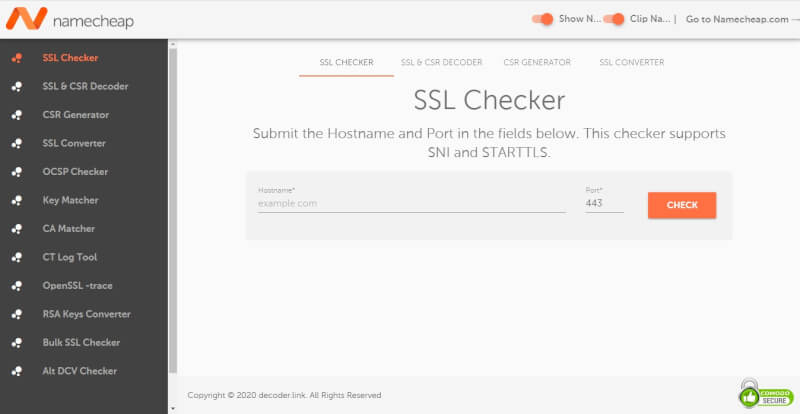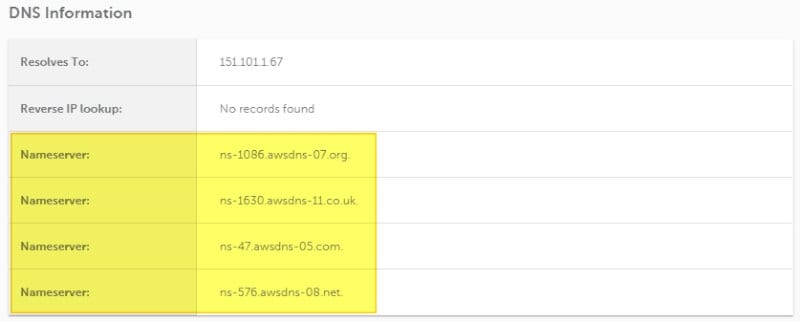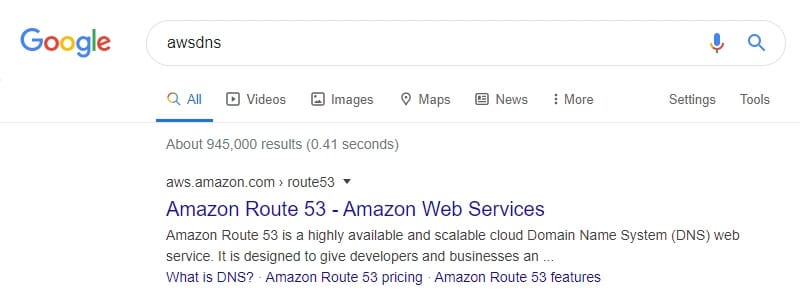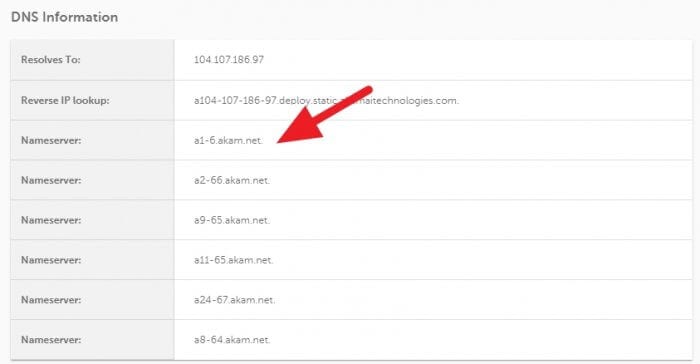Sometimes when you visited a very fast & responsive website, you might wonder what hosting service they are using, and perhaps you might be interesting to use it as well. Fortunately, you don’t have to ask them. There is a way to detect the hosting provider name used by a website easily. Follow the guide below.
Table of Contents
Using SSL Checker
1. Go to SSL Checker decoder.link. This is a free tool by Namecheap that could detect SSL information for free. No registration required.

2. Input the website address, and click Check.

3. Go to Nameserver to see the server destination. From here, you could identify the hosting service.

4. If you are not sure, try to search the Nameserver query on Google. There will be definitive answers there.

Online Lookup Tools
Several handy online tools can be used to look up information on a website’s infrastructure and hosting:
- WHOIS – This service queries domain name registration records to find details on the owner and admin contacts for a site. The records sometimes also list the hosting provider.
- Netcraft – Netcraft maintains a database mapping sites to their hosting. It uses network probes to detect sites and extract hosting info.
- HostingChecker – HostingChecker checks a site’s DNS records and server signatures to predict the hosting provider.
The advantage of these lookup sites is they’re easy to use – just enter the domain and get the hosting info. However, many large sites today use Content Delivery Networks (CDNs) like Cloudflare to improve performance. So the tools may report the CDN rather than the actual host.
Analyze DNS Records
A website’s Domain Name System (DNS) records can also provide clues on where it’s hosted:
- Nameservers – The nameservers configured for a domain often indicate the hosting provider. For example, if they end in
ns.liquidweb.com, Liquid Web is likely the host.
- SPF Records – Sender Policy Framework (SPF) records authorize mail servers. These sometimes reference hosting providers.
- MX Records – The Mail Exchange (MX) records naming the site’s mail servers may reveal hosting info.
Checking DNS configurations requires more technical expertise than an online lookup tool. And the DNS could be pointing to a reseller rather than the actual datacenter operator hosting the site. But combining these records with other methods starts narrowing down the possibilities.
Check Website Source Code
For sites you have access to directly browse, view the raw HTML and JavaScript files loaded by the browser. References to hosting providers are sometimes buried in the code:
- Code comments may mention the host.
- Paths to included scripts can show hosting provider references.
- Error message text may expose the underlying host.
Of course site owners can remove or obscure these hosting references in their codebase. Some platforms like WordPress allow installing security plugins to hide verbose error messages. So checking source code works better with less tech-savvy sites.
Contact Website Owner or Admin
For sites where you’re genuinely curious about the hosting setup, you could try contacting the owners directly.
- Most sites have a “Contact Us” page or web form to get in touch with the owners.
- WHOIS records list the admin contact for a domain – though info quality varies.
- Performing a
whoisquery directly on the domain from the command line can provide admin contact info.
Obviously owners may not respond to hosting-related inquiries from random strangers on the internet. But if you make a friendly request explaining your interest, some may be happy to share details on their hosting provider and experience.
You can’t always get the hosting name

We can identify the hosting name by its nameserver. Unfortunately, some website owners decided to give away the nameserver control to a third-party service like Cloudflare. Hence, the real IP address is masked and cannot be seen by the public. Not only that, but website owners can also use a custom nameserver inherited from the website name.
If this is the case, you may reach the website owner and ask them about the hosting service.
Additional Insights: Tips for Identifying Hosting Providers
Why Use Multiple Tools?
Sometimes, a single tool might not give you complete information due to privacy settings or the use of CDNs like Cloudflare. Combining tools like WHOIS Lookup, HostingChecker, and SiteChecker can provide a more comprehensive view of a website’s hosting details.
Leverage Reverse IP Lookup
Reverse IP lookup tools like ViewDNS.info allow you to see other domains hosted on the same server. This can sometimes reveal patterns or additional clues about the hosting provider.
Check for CDN Usage
If the hosting provider information seems hidden, it might be due to the use of a CDN. Tools like Netcraft can help differentiate between a CDN and the actual hosting provider by analyzing server responses and headers.
Inspect Server Headers
Using browser developer tools or online header checkers, you can analyze HTTP headers for potential hints about the hosting provider. Look for server names or technologies that might indicate the host.
Consider Regional Hosting Trends
The geographical location of a server can influence its hosting provider. For example, European domains often use GDPR-compliant hosts like OVHcloud or Hetzner. Tools like DNSChecker can provide server location details.
By combining these strategies, you can enhance your ability to identify a website’s hosting provider effectively.







